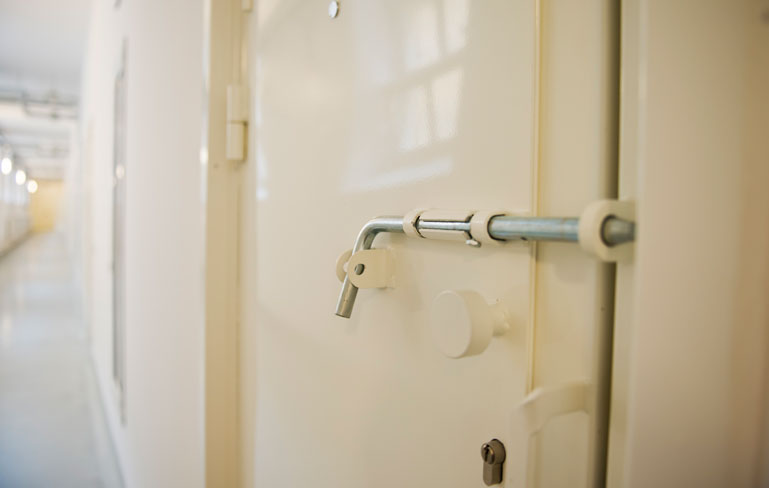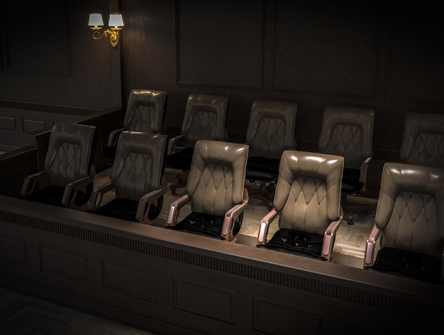Solitary confinement: Bill C-83, if passed is open to a challenge
After a stinging defeat at the Ontario Court of Appeal, the federal government is now facing tough questions as to whether its legislation to reform the use of solitary confinement is going to pass constitutional muster — or even whether it will survive a vote in the Senate.

After a stinging defeat at the Ontario Court of Appeal, the federal government is now facing tough questions as to whether its legislation to reform the use of solitary confinement is going to pass constitutional muster — or even whether it will survive a vote in the Senate.
On Thursday, the appeals court sided with the Canadian Civil Liberties Association and declared the sections of the Corrections and Conditional Release Act, which authorize so-called “administrative segregation,” to be unconstitutional.
The CCLA had appealed the lower court ruling in the matter, as CBA National reported in November, that held that the federal government must adopt new policies and practices to make the Act compliant with the Charter.
The CCLA had appealed the lower court ruling in the matter, as CBA National reported in November, that held that the federal government must adopt new policies and practices to make the Act compliant with the Charter.
The CCLA argued that “this legislation...is not capable of behaving in a constitutional way.” And the appeals court agreed.
Michael Rosenberg, a partner at McCarthy Tétrault and counsel for the CCLA, calls the ruling a “significant win.”
“The decision imposed a hard limit at 15 days to safeguard against the debilitating harms of extreme isolation,” he said. “This is the first time that a Canadian court has imposed a hard limit on the use of solitary confinement.”
The Court of Appeal concluded that administrative segregation lasting longer than 15 days, also set out in U.N. guidelines on the treatment of prisoners, is a violation of inmates’ right to be free of cruel and unusual punishment. It ordered that those provisions be of no force and effect.
The ruling lights a new fire for Ottawa, as the court suspended the order for just 15 days.
The Superior Court ruling had given the federal government 12 months. Even then, Ottawa had to request an extension, and was given until April 30.
Justice Minister David Lametti’s office referred questions to Public Safety Minister Ralph Goodale. His office declined an interview request, but told CBA National: “We are reviewing the court’s decision.”
As Rosenberg explained on Friday, the dual deadlines carry huge implications. “The Court of Appeal’s decision takes effect April 13, 2019, and it will dramatically limit the use of solitary confinement in Canadian prisons,” he said. “On April 30, 2019, the suspension of [the Superior Court’s] finding of constitutional invalidity at first instance will expire, and the legislation authorizing administrative segregation for any period of time will be struck.”
The Trudeau government is currently trying to marshall legislation through the Senate which would reform the impugned sections of the Act.
Yet Thursday’s ruling spells trouble for their reform package.
Bill C-83, the government’s legislation designed to address both the ruling from the Ontario Superior Court and a similar judgment from the Supreme Court of British Columbia, claims to end the practice of solitary confinement. But it does not impose a cap on how many days a prisoner could be kept in isolation.
Goodale’s office says the bill “will eliminate segregation and establish a fundamentally different system focused on rehabilitative programming and treatment. Its new approach will allow us to separate inmates when necessary to maintain safety, while at the same time ensuring that those inmates receive mental healthcare, programming, and meaningful, face-to-face human contact.”
And yet Rosenberg told CBA National in November that C-83 was, from a Charter perspective, “dead on arrival.”
But Goodale’s office is confident and appears to believe that the cap will not apply to the new legislation. “The court did not consider the constitutionality of the system proposed under C-83, which requires twice as much time out of cell every day, meaningful human contact and independent external oversight,” a spokesperson for the minister said in a written statement. “However, the court noted that ‘the distinguishing feature of solitary confinement is the elimination of meaningful social interaction or stimulus.’ That’s exactly the problem that C-83 corrects.”
There is no guarantee that such a position will be endorsed by the courts. By early April, prisons will need to figure out how to handle the hundreds of inmates currently in segregation.
The federal government, meanwhile, must decide whether to press ahead with their bill, or whether to pull, or amend, the legislation.
Senator Kim Pate, a former Executive Director of the Canadian Association of Elizabeth Fry Societies who was appointed to the Senate because of her work fighting for incarcerated peoples, says that there’s no salvaging the bill.
“If I were the government, I would be withdrawing C-83 and starting all over again,” she said on Friday. She says the Court of Appeal decision was “incredibly clear” in finding that the practice of solitary confinement, whatever it is called, needs to end.
What’s more, adding the 15-day cap spelled out by the Court of Appeal won’t be enough, she says. “The structural problems of C-83 are deeper and encompassing than that — not only are there no caps in C-83 as it currently stands, it also currently removes the current procedural safeguards, even as inadequate as they have clearly shown to be,” she said.
Rosenberg agrees: “The Court of Appeal also recognized that some mentally ill inmates cannot be admitted to solitary confinement for even a single day,” he noted.
C-83 envisions changing the administrative segregation units — where prisoners can be held in their cell, 22 hours a day, for weeks, months, or even years — with “structured intervention units.” Those new units will reduce the time inmates spend in their cell to 20 hours a day.
Ottawa is putting stock in the fact it has already reduced the use of segregation. As of this week, there were just 322 inmates in solitary confinement — a significant decline from earlier practice.
The senator adds that there is a real lost opportunity with the bill. The Act has always contemplated for transfers out of prisons for inmates who are most vulnerable or most at risk, especially those with mental illness or LGBTQ peoples.
“Breathing life into those provisions and implementing them should have always been the priority,” Pate says, adding: “There could be desegregation and decarceration approaches.”
Pate says the appeal ruling “should give every one of us — not just in the Senate, but in the House of Commons and the public — pause.”
That comment may prove prescient. While it is not clear what committee C-83 is destined for, there is a real chance it will end up before the Senate Standing Committee on Human Rights — Pate’s committee.
That committee has spent more than a year studying the issue of human rights in the correctional system and could attempt to amend the bill significantly. That would likely destroy any chance of the bill becoming law before the election — unless the government introduces significant changes which could win over the Senate.
“I would hope that the government is considering what other options it has,” Pate says. “Fixing up C-83 is more work than it’s worth.”


